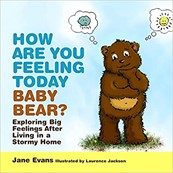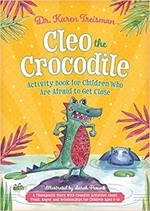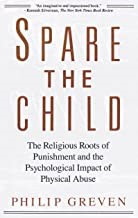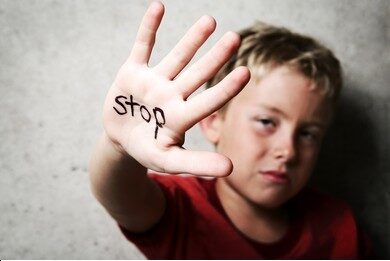In the third installment of our series on childhood abuse, we look at how some children come into foster care due to experiencing physical abuse and what may have been the impact of these difficult experiences for them. Firstly…
What is physical abuse?
“Physical abuse is any way of causing deliberate physical harm to a child, including hitting, slapping, punching, shaking, throwing, kicking, poisoning, burning or scalding, biting, scratching, breaking bones, drowning, or suffocating.
Physical abuse also includes making up the symptoms of an illness or deliberately causing a child to become unwell, which can happen by giving the child unnecessary medication. This is known as fabricated or induced illness (FII)
Shaking or hitting babies is a form of physical abuse which can cause abusive head trauma (AHT) and non-accidental head injuries (NAHI).”
(bhscp.org.uk, 2021)
What are the effects of physical abuse on children?
Physical abuse can have long-lasting effects on children and young people. Sometimes abuse starts early with parents shaking their baby as an impulsive reaction to crying, with many not understanding the full consequences of these actions.
If a baby or infant is shaken or thrown down they may suffer abusive head trauma (AHT), also known as shaken baby syndrome. This can result in injuries to a baby’s head or brain, eyes, and other areas, which can lead to long-term disabilities, learning problems, seizures, sight issues or blindness, speech problems, behavioural issues, brain damage or death.
Other consequences of physical abuse on children of all ages include:
- Poor mental health, including anxiety and depression
- Poor self-esteem
- Eating disorders
- Self-harm and attempts at suicide
- Behaviour issues
- Criminal behaviour
- Drug and alcohol problems
- Issues at school
- Trouble eating and/or sleeping properly
- Risky sexual behaviour
- Difficulties forming relationship in the long term
How best can a foster carer support a physically abused child?
The top 3 things that a child that has experienced physical abuse will need from their foster carers are:
- reassurance that what has happened to them is not their fault
- understand that the child may not trust you to be a safe adult, so you may need to earn that trust
- they may need lots of emotional support and patience
Resources
Further information and advice on the impact of physical (and other forms of) abuse are available to foster carers via your supervising social worker, as well as your regular and ongoing training sessions. There are some further links below, as well as our online resource library.
 How Are You Feeling Today Baby Bear?: Exploring Big Feelings After Living in a Stormy Home
How Are You Feeling Today Baby Bear?: Exploring Big Feelings After Living in a Stormy Home
By Jane Evans
Baby Bear lives in a home with the Big Bears, and loves to chase butterflies and make mud pies – they make Baby Bear’s tummy fill with sunshine. Then, one night, Baby Bear hears a big storm downstairs in the house and in the morning, Baby Bear’s tummy starts to feel grey and rainy. How will such a small bear cope with these big new feelings?
This sensitive, charming storybook is written to help children who have lived with violence at home to begin to explore and name their feelings. Accompanied by notes for adults on how to use each page of the story to start conversations, it also features fun games and activities to help to understand and express difficult emotions.
 Cleo the Crocodile Activity Book for Children Who Are Afraid to Get Close
Cleo the Crocodile Activity Book for Children Who Are Afraid to Get Close
By Dr Karen Treisman
Amongst the beauty of the Okavango delta in Botswana, Cleo the Crocodile loved having fun with all of his animal friends. That is, until one day Hogan the Hippo, who was supposed to look after Cleo, started to act mean and hurt him. Cleo has to leave the swamp to find a safe new home – he’s scared and puts his prickles up for protection, so all the other animals are afraid of him. How can Cleo find a new safe home? How can he make new friends when he doesn’t know who he can trust?
This activity book developed by expert child psychologist Dr Karen Treisman combines a colourfully illustrated therapeutic story about Cleo the Crocodile to help start and enrich conversations, which is followed by a wealth of creative activities and photocopiable worksheets for children to explore issues relating to attachment, relationships, rejection, anger, trust and much more.
The activities are accompanied by extensive advice and practical strategies for parents, carers, and professionals on how to help children aged 5-10 to start to name their tricky feelings. It will help children to understand their own prickles, to trust others and begin to invest in relationships so they can let others close again.
 Spare the Child: The Religious Roots of Punishment and the Psychological Impact of Physical Abuse
Spare the Child: The Religious Roots of Punishment and the Psychological Impact of Physical Abuse
By Philip J. Greven
He that spareth his rod hateth his son: but he that loveth him chasteneth him betimes. These words provided generations of American Christians with the justification for physically disciplining their children, in ways that range from spankings to brutal beatings. This learned and deeply disturbing work of history examines both the religious roots of corporal punishment in America and its consequences — in the minds of children, in adults, and in our national tendencies toward authoritarian and apocalyptic thinking. Drawing on sources as old as Cotton Mather and as current as today’s headlines, Spare the Child is one of those rare works of scholarship that have the power to change our lives.
(reviews by amazon.co.uk, 2021)
Sources
https://www.bhscp.org.uk/preventing-abuse-and-neglect/types-of-abuse-and-neglect/physical-abuse/ – Brighton & Hove Safeguarding Children Partnership
by Lynsey Dobbs – Senior Recruitment Officer, UK Fostering

